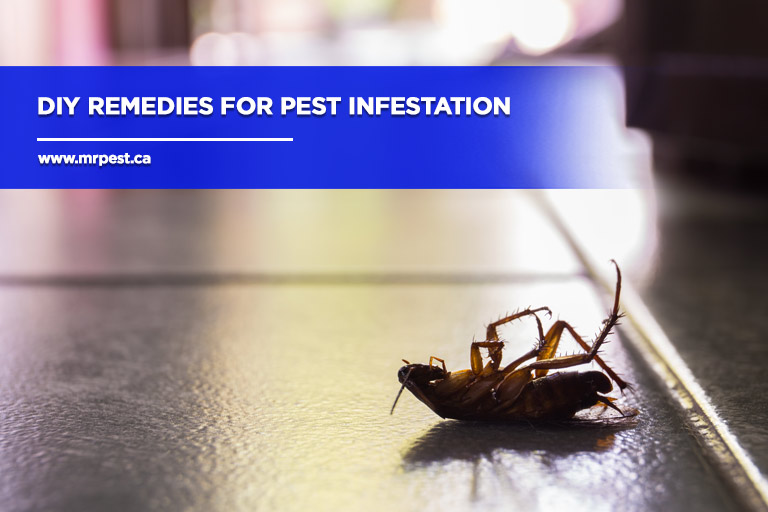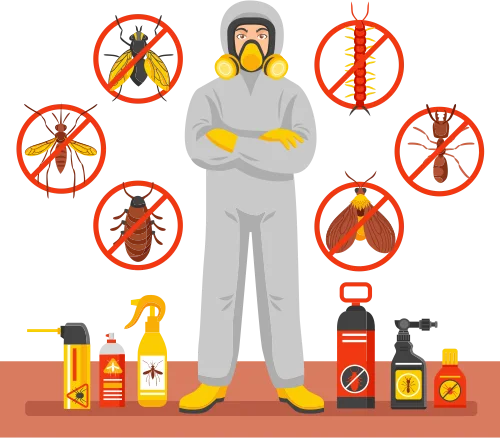Trusted Exterminator Coquitlam Services for Effective Pest Management
Trusted Exterminator Coquitlam Services for Effective Pest Management
Blog Article
Safe and Reliable Pest Control for Lasting Protection
Efficient insect monitoring needs a complex strategy that balances environmental honesty with the requirement for efficient pest suppression. The subtleties of these techniques may not be immediately clear, triggering a closer assessment of the practices that can lead to sustainable pest control outcomes.
Recognizing Bug Control Approaches
Pest control incorporates a variety of approaches focused on handling and eliminating unwanted bugs and rodents that can threaten both health and home. Comprehending these techniques is crucial for efficient pest management.
The primary groups of bug control methods consist of mechanical, organic, and chemical approaches. Mechanical approaches include physical barriers and traps to avoid pest entrance and capture unwanted types. Utilizing screens on windows or utilizing sticky catches can dramatically reduce insect populaces without introducing damaging compounds - exterminator coquitlam.

Chemical insect control is typically the most acknowledged method, making use of chemicals to get rid of bugs. These chemicals can be efficient but should be utilized with caution to prevent damaging effects on non-target species and the environment.
Advantages of Eco-Friendly Solutions
Exactly how can environmentally friendly solutions transform pest control practices? The adoption of environmentally friendly pest control approaches uses countless benefits, significantly enhancing the efficiency and safety of insect management (exterminator coquitlam). Firstly, these remedies utilize natural active ingredients, minimizing the dependence on unsafe chemicals that can position risks to human health and wellness and the setting. This shift not only safeguards animals and family members yet additionally minimizes the capacity for soil and water contamination.
Another benefit is the positive effect on regional biodiversity. Environment-friendly solutions are designed to target specific pests while protecting advantageous insects and wildlife, advertising a balanced environment. This method straightens with the growing consumer demand for sustainable practices, improving the reputation of bug control providers.
Integrated Pest Administration Approaches
The implementation of environmentally friendly solutions naturally results in the fostering of Integrated Bug Monitoring (IPM) methods, which additionally enhance pest control efficiency. IPM is an all natural method that combines numerous tactics to handle pest populaces while minimizing environmental effect. This strategy emphasizes making use of biological, social, mechanical, and chemical controls, guaranteeing a lasting and well balanced approach of parasite management.
One essential facet of IPM is the complete evaluation of parasite task and ecological conditions. By keeping track of pest populaces and identifying their life cycles, practitioners can implement targeted treatments that disrupt the parasite's environment or lifecycle, reducing reliance on chemical pesticides. Furthermore, cultural practices such as plant turning and habitat control can significantly reduce bug establishment and reproduction.
An additional vital component is using organic control agents, such as useful pests or microorganisms, which can normally suppress insect populations. When chemical applications are needed, IPM focuses on the use of low-risk chemicals and applies them precisely, decreasing exposure to non-target microorganisms and people.
Integrating IPM methods not only go to my site enhances bug control effectiveness yet additionally promotes a safer ecosystem, lining up with the expanding demand for lasting techniques in parasite management.
Safe Practices for Property Owners
Understanding the importance of risk-free practices in insect control can equip homeowners to effectively manage insect issues while securing their health and the environment. Implementing preventative procedures and non-toxic techniques is important in lessening direct exposure to damaging chemicals.
Property owners need to initially analyze their setting for problems that attract bugs, such as standing food, mess, and water waste. On a regular basis cleansing and securing entry points can deter insects from invading the home. Utilizing all-natural deterrents, such as crucial oils or diatomaceous planet, can provide effective choices to chemical pesticides.
When chemical therapies are necessary, homeowners ought to decide for products that are especially identified as risk-free for residential usage. It is essential to comply with application guidelines thoroughly to prevent overexposure. Making use of targeted therapies in locations where parasites are determined, instead than blanket splashing, can useful reference considerably lower chemical usage.
Lastly, maintaining open interaction with insect control professionals is crucial. Home owners should ask about the safety and security of items utilized and demand eco-friendly options whenever feasible. By taking on these safe methods, home owners can develop a healthier living setting while successfully handling insect problems.

Tips for Long-Term Defense
Developing a bug management approach that emphasizes long-term defense can considerably boost the efficiency of the risk-free techniques formerly reviewed. To attain this, property owners should execute normal assessments of their residential property, concentrating on hidden areas such as attics, cellars, and crawl spaces. Early detection of parasite task is important in stopping infestations from holding.
Furthermore, maintaining a tidy environment is important. This includes appropriate food storage space, promptly cleaning up spills, and regularly dealing with garbage. These practices reduce attractants that attract parasites into the home. Moreover, sealing entry points, such as splits around doors and home windows, can properly block possible pest accessibility.
Landscaping needs to likewise be taken into consideration; maintaining plants cut and keeping a range in between plants and the home minimizes concealing areas for insects. Using natural deterrents, such as crucial oils or diatomaceous planet, can additionally inhibit infestations without turning to extreme chemicals.
Finally, collaborating with a specialist insect control service for routine assessments can provide an you can try here added layer of protection. These experts can use customized referrals and advanced therapies, making sure that your home stays shielded versus parasites in the long term.
Conclusion
Finally, safe and dependable bug control calls for a complex approach that stresses green techniques and integrated insect monitoring. By applying all-natural deterrents, conducting normal inspections, and preserving proper sanitation, residential property owners can dramatically reduce bug populaces while safeguarding advantageous insects and the atmosphere. Partnership with specialist bug control solutions boosts the effectiveness of these approaches, ensuring customized options that offer lasting defense and assurance versus future invasions.
Effective insect administration calls for a complex strategy that stabilizes eco-friendly stability with the requirement for efficient pest reductions. The fostering of environment-friendly bug control methods provides many benefits, substantially enhancing the efficiency and safety and security of parasite monitoring.The implementation of green solutions normally leads to the adoption of Integrated Parasite Administration (IPM) methods, which additionally enhance insect control effectiveness. exterminator coquitlam. By keeping track of insect populations and identifying their life cycles, experts can carry out targeted interventions that disrupt the insect's habitat or lifecycle, minimizing reliance on chemical pesticides.In conclusion, reliable and secure parasite control calls for a complex strategy that stresses green methods and incorporated bug management
Report this page